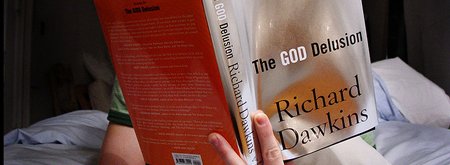Tree-Surgery for Atheists
Recently, Colin Blakemore tried to argue that the relentless march of science was leaving precious little room in which religion could survive. He argued that belief in supernatural forces was of a piece with our mistaken belief in freewill. According to Blakemore, both are simply an “illusion”. I think he is wrong. More than that, I think he believes he it as well, or at the very least, he behaves as if he does.
In the course of his argument, Professor Blakemore quoted Pope Benedict XVI when he said, “If, however, reason…becomes deaf to the great message that comes from the Christian faith and its wisdom, it will wither like a tree whose roots no longer reach the waters that give it life.” Blakemore then trivialises the issue by listing a series of scientists who were not Christians as if that was the Pontiff’s point.
Rather, Pope Benedict was highlighting the fact that the branch of life society calls science is actually dependent on a series of assumptions that Christianity has bequeathed to it. These include the belief that the natural world is rational and consistent, that our senses are generally reliable and that human reason itself is an appropriate tool with which to investigate that world. As Einstein once said, “the eternal mystery of the world is its sheer comprehensibility.” Unless we wish to posit a crass circularity, these assumptions cannot themselves be the fruit of scientific enquiry. They are given to us from beyond science – that was the point, which Blakemore, either wilfully or out of ignorance, ignores.
If then, in the name of science, we separate ourselves from this intellectual trunk we will have cut ourselves off from the only thing which is supporting us. And this was amply demonstrated by Blakemore’s argument regarding freewill. Blakemore suggests to us, on the basis of recent neuroscience, that freewill is a “misconception”. He describes as “false logic” the “belief that actions are the result of conscious intentions”.
If that is the case then not only should we dispense with the whole criminal justice system, but also all discussion of morality. Accordingly, Hitler and Mother Theresa would be on the same moral plain, for neither of them freely chose how they would behave. Does Blakemore really believe that? Does anyone?
I don’t think he does, or at the very least, his actions deny that he does. For he clearly wrote his piece last Sunday with the express intention of persuading others – presumably people like myself – that religion is a waste of time. But if he is correct that freewill is an illusion, then I have no choice but to be religious, or to write this response. Moreover, I will certainly not be persuaded by any amount of evidence or logic that Blakemore can muster in his writing. After all, my actions and beliefs are dictated merely by the chemical reactions going on in my brain.
But if that is true for me, it is also true for everyone, including scientists like Blakemore. None of us would make decisions or reach conclusions on the conscious evaluation of evidence and argument. Rather, we simply reflect what our genes and biology have already predetermined for us. But if that is true, then the whole scientific endeavour is a fool’s errand. For science is predicated on the examination and analysis of evidence to reach conclusions that are then further tested and so on. If, however, we do not reach conclusions based on evidence – as Blakemore’s argument would suggest – what is the purpose of all that experimentation. We are, in Blakemore’s world, simply fooling ourselves.
The fact then is that if Blakemore’s interpretation of contemporary neuroscience is correct – that freewill is indeed an illusion – then that calls into question the scientific basis upon which Blakemore builds his argument. Moreover, at least in how he behaves, Blakemore has demonstrated that he does not believe this to be the case. He continues to experiment, to write, to seek to persuade – actions all of which require a belief in freewill. It is as if he is trying to argue with reason that reason does not exist, or to argue on the basis of science that science is hopelessly mistaken. Freewill may not be explained by current neuroscience, but the fact remains that without believing in it, we simply cannot do the science that might or might not be capable of undermining it.
© 2009 Justin Thacker
Used by kind permission of the author.
This article also appeared on the Guardian’s website and in the Evangelical Alliance’s Friday Night Theology column.
The Evangelical Alliance’s Friday Night Theology e-mail provides a weekly comment on a topical event to help evangelism. Sign up for free at www.eauk.org/fnt.



